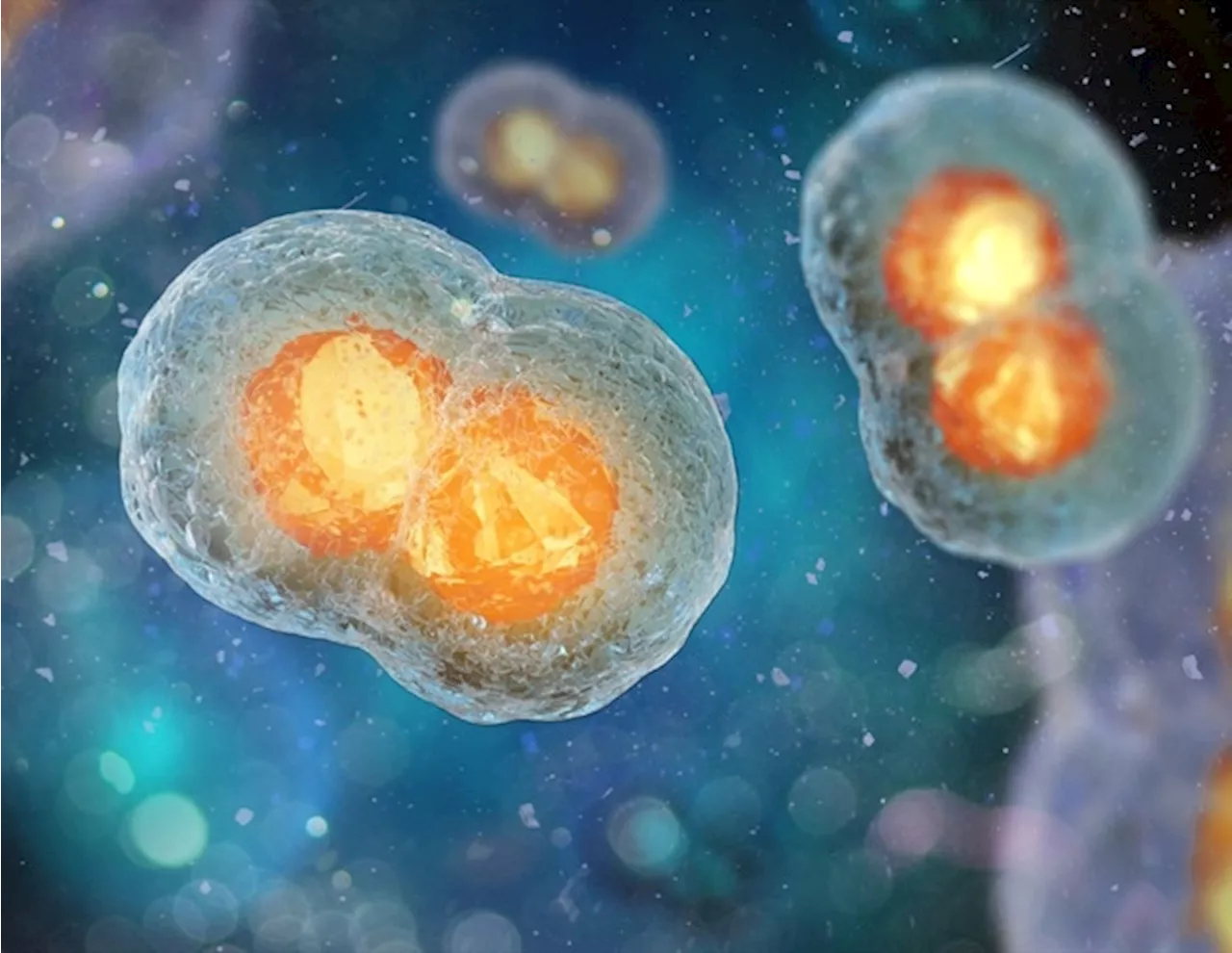Hiroshi Abe and his team at Nagoya University have developed a novel method called Internal Cap-Initiated Translation (ICIT) that allows for precise control of protein synthesis in target cells. This breakthrough utilizes circular mRNA, known for its stability and reduced inflammatory effects, and introduces an internal cap structure to enhance translation efficiency. ICIT has the potential to revolutionize mRNA medicine by enabling the production of healthy proteins for treating diseases like Duchenne muscular dystrophy or toxic proteins for selectively killing cancer cells.
Nagoya UniversityFeb 19 2025 Imagine a breakthrough in cancer treatment where only malignant cells are targeted, sparing healthy host cells; or patients with abnormal protein synthesis are treated to produce a healthy protein. Hiroshi Abe and his colleagues at Nagoya University have identified two applications, among others, in a new study.
However, one significant challenge with circular mRNAs has been the inefficiency of their translation inside living organisms. Previous methods relied on long internal ribosome entry sites for introducing the mRNA, which were difficult to optimize and often inefficient. Abe's team overcame this hurdle by introducing a cap structure into the circular mRNA itself.
This technology is expected to revolutionize mRNA medicine, including antibody therapy, genome editing, and protein replacement therapy. Current mRNA is fundamentally unstable, requiring constant injections to be used for treatments such as protein replacement, a problem that our technique overcomes. Using this, we could treat diseases caused by abnormal protein synthesis, such as Duchenne muscular dystrophy.
Mrna Cancer Treatment Protein Synthesis Precision Medicine Circular Mrna
United Kingdom Latest News, United Kingdom Headlines
Similar News:You can also read news stories similar to this one that we have collected from other news sources.
 University of Michigan Researchers Validate At-Home Urine Test for Prostate CancerA new study from the University of Michigan Health Rogel Cancer Center has clinically validated a urine test called MyProstateScore 2.0 (MPS2) that could potentially replace invasive procedures for prostate cancer screening in men who are unlikely to benefit. MPS2 analyzes 18 genes linked to high-grade prostate cancer and has shown high accuracy in detecting aggressive cancers, surpassing the sensitivity of blood tests.
University of Michigan Researchers Validate At-Home Urine Test for Prostate CancerA new study from the University of Michigan Health Rogel Cancer Center has clinically validated a urine test called MyProstateScore 2.0 (MPS2) that could potentially replace invasive procedures for prostate cancer screening in men who are unlikely to benefit. MPS2 analyzes 18 genes linked to high-grade prostate cancer and has shown high accuracy in detecting aggressive cancers, surpassing the sensitivity of blood tests.
Read more »
 University of Liège Researchers Discover New Mechanism Regulating Immune Response to ParasitesResearchers at the University of Liège have uncovered a previously unknown mechanism that regulates the immune response against parasites. During a parasitic infection, specific immune cells, known as virtual memory T cells (TVM), become activated and express a surface molecule called CD22, which prevents an excessive immune reaction. This discovery could help in better-controlling inflammation and improving immune responses to infections.
University of Liège Researchers Discover New Mechanism Regulating Immune Response to ParasitesResearchers at the University of Liège have uncovered a previously unknown mechanism that regulates the immune response against parasites. During a parasitic infection, specific immune cells, known as virtual memory T cells (TVM), become activated and express a surface molecule called CD22, which prevents an excessive immune reaction. This discovery could help in better-controlling inflammation and improving immune responses to infections.
Read more »
 University of Delaware Researchers Uncover Genetic Links to ObesityA new study from the University of Delaware explores the genetic factors contributing to obesity, a growing health concern affecting millions of Americans. By examining gene expression in adipose tissue of animal models, researchers identified key differences between subcutaneous and visceral fat, highlighting the potential for targeted interventions to mitigate obesity-related health risks.
University of Delaware Researchers Uncover Genetic Links to ObesityA new study from the University of Delaware explores the genetic factors contributing to obesity, a growing health concern affecting millions of Americans. By examining gene expression in adipose tissue of animal models, researchers identified key differences between subcutaneous and visceral fat, highlighting the potential for targeted interventions to mitigate obesity-related health risks.
Read more »
 Osaka University Researchers Develop New Technique to Understand Treg Function in Immune SystemA team at Osaka University has developed a novel method called scSPOT that allows scientists to study the complex interactions between regulatory T cells (Tregs) and other immune cells. This breakthrough could lead to the development of new treatments for cancer and other diseases.
Osaka University Researchers Develop New Technique to Understand Treg Function in Immune SystemA team at Osaka University has developed a novel method called scSPOT that allows scientists to study the complex interactions between regulatory T cells (Tregs) and other immune cells. This breakthrough could lead to the development of new treatments for cancer and other diseases.
Read more »
 Osaka University Researchers Develop Groundbreaking Technique to Unravel Immune System SecretsA novel technique called scSPOT allows scientists to simultaneously observe the effects of Tregs on all other immune cells, providing unprecedented insights into immune system function and disease.
Osaka University Researchers Develop Groundbreaking Technique to Unravel Immune System SecretsA novel technique called scSPOT allows scientists to simultaneously observe the effects of Tregs on all other immune cells, providing unprecedented insights into immune system function and disease.
Read more »
 'We are Telford and Shropshire's university' - Harper Adams reaffirms commitment as Wolverhampton University abandons TelfordThe county's leading Harper Adams University has reaffirmed its commitment to Shropshire.
'We are Telford and Shropshire's university' - Harper Adams reaffirms commitment as Wolverhampton University abandons TelfordThe county's leading Harper Adams University has reaffirmed its commitment to Shropshire.
Read more »
